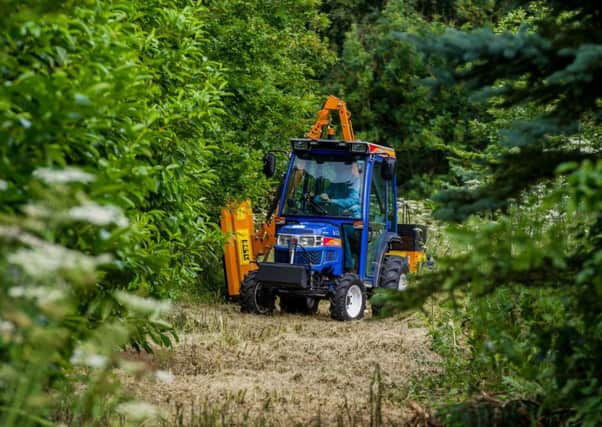Ross Murray: Towards a new deal for Britain's farmers


He opined that agriculture was a strategic industry, and we know the United States has long supported its industry via an insurance scheme. His background from a farm in Ontario, his studies and then work for the US government in pricing control during the Second World War soon after the agricultural depression of the 1930s no doubt shaped his views.
I agree with Galbraith on this occasion. If an army marches on its stomach, the first duty of the state before defending itself is to see the nation is fed.
Advertisement
Hide AdAdvertisement
Hide AdThe Tudors worked that one out, as did Churchill. Not state farms, such as the Collectives in the last century. But private enterprise in a market-orientated agricultural and food sector, where citizen farmers all play our individual roles.
Above us we look to sophisticated supply and manufacturing lines where the bargain with primary producers could always be fairer, and which promote the highest standards for consumer confidence. And to industry bodies, academia and state-sponsored organisations for better training, ground-breaking R&D, financial investment and many other ways of making UK farming more productive as well as conserving resources and nature as they go.
No small challenge for anyone in a crowded island with pressures on income and a distancing of the relationship between town and country.
But as the UK embarks on its greatest political adventure for a century which requires repatriation of food, farming and environmental policy, now is the moment for the CLA to reboot thinking on the relationship between the farmer and the state. And to use all our skills and advocacy so that the terms of this new relationship will be publicly acceptable and strong enough to endure political change in the years ahead. Relying on the status quo is not a strategy.
Advertisement
Hide AdAdvertisement
Hide AdPolitical risk is a dimension few businesses had considered seriously until last year. Now it is all around us. And just watch how a weak currency impacts on the cost of imported food in the years ahead, stoking inflationary pressures and emphasising Galbraith’s view of the strategic importance of domestic production.
So on the face of it that view is both correct and an opportunity. Michael Gove needs convincing and we are working with him. We sense the view that all farmers should receive an acreage payment is increasingly seen as old-fashioned.
But first let’s acknowledge the national interest, and that agriculture as an industry requires significant public and private investment to improve profitability. Grants and tax incentives for new buildings, R&D on a new scale that changes farm practice, business and skills training, promotion of British food, and support to new entrants and retirees all feature.
Under the CLA’s proposed Land Management Contract, the land manager or farmer is freely able to choose from a range of activities for providing public goods that the market cannot promote: resource protection including soils that safeguard our strategic food production, carbon capture, storing water, long-term tree planting, maintaining the uplands, providing access, delivering high standards of animal welfare and enhancing wildlife. The exact matrix of incentives needs careful work, and probably a pilot project to get this right.
Advertisement
Hide AdAdvertisement
Hide AdBut the essential change is a move to a contract basis longer than our political cycle, with reciprocal rights between farmer and state where payment is on the nail and pays for prescribed activity.
The ultimate test of whether the Government agrees with me is the extent to which it remains willing to support agriculture and indeed the wider rural economy. Support means investment, which requires money and other resources committed for the longer term. From that flows confidence.
The countryside matters because it is the nation’s garden. Let’s hope for a good harvest in every respect.